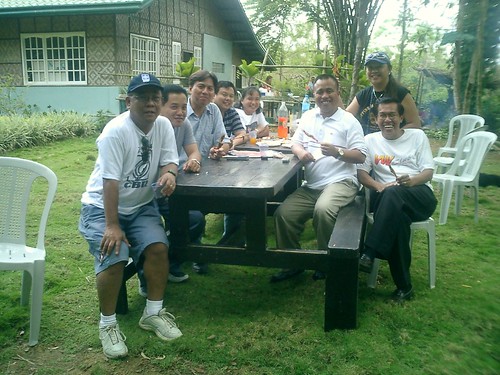Editorial : Untenable

Gonzales sought to defend the P50-million contract with Venable LLP by justifying the need for the government to hire its own lobbyists. "We're looking at certain grants, aids, programs between the two countries, and my own observation is that some of these are not forthcoming when they should be coming [sic] already. I thought that we should look into the situation there and the normal practice in the US is that you get a lobby group."
Then he invoked his own boss, saying that President Macapagal-Arroyo had given him a specific piece of advice. "The government could have a lobby group but we should not spend money for this," he recalled her saying so.
But those cautionary words do not and cannot excuse the very idea of soliciting a foreign power's assistance in changing our Constitution; in fact, they make the notion even more inexcusable.
Getting the private sector to foot the bill for a project of this kind is not a Solomonic decision. It is, instead, Herodian: It involves getting somebody else to do one's dirty work.
Palace initiatives become matters of great public concern when they are blithely explained away as being funded by private money. For one thing, the real reason is government officials do not want to account for the expense, not because the national government is cash-strapped. For another, private donations always come with strings attached.
It was for these same reasons that we objected to the expensive, privately funded refurbishing of the presidential yacht during President Joseph Estrada's time. Our own history teaches us that the generosity of cronies comes at a price.
But Gonzales cannot even name who the Venable contract's cronies-to-be are. He said he does not yet know who they are, because his job was merely to "sign the contract and monitor the specifications of the contract."
This is an explanation that not only does not explain; it undermines the credibility of the explainer himself.
As the original report of the Philippine Center for Investigative Journalism made clear, none of the senior Cabinet officials who ought to have vetted the contract had even heard of it: not Executive Secretary Eduardo Ermita, not Presidential Legal Adviser Merceditas Gutierrez, not the highest officials of the Department of Foreign Affairs, not the Ambassador to the United States. Not even his deputy at the National Intelligence Coordinating Agency knew about the lobbying contract Gonzales had entered into.
In that case, it must have been an off-the-books affair, like special operations during elections. But if Gonzales himself does not know who the private donors are, then who would? Is he saying it's the President alone who knows who's donating and by how much?
That can only deepen public concern, about the real costs of the Venable contract.
Gonzales sought to dampen the growing public indignation over the arrangement by saying that Venable was committed to render many other services for the government, and that the Charter Change provision was a mere add-on. The contract, he said, specified "mostly ... defense matters."
But a look at the contract itself, easily available on the Internet, shows that lobbying in the United States for constitutional change in the Philippines is no afterthought; in fact, in the list of "specific tasks" which Venable "will undertake and use best efforts to accomplish," it comes first.
"(1) Secure grants or congressional earmarks for support of the Charter Change initiative of the President of the Philippines, which would reshape the form of government in the Philippines from its current structure into a parliamentary federal system."
The "capability enhancement program for the Armed Forces of the Philippines" only comes in third. So much for defense matters.
Gonzales' latest statements convince us not only that the contract must be scrapped, but also that the circumstances that led to it be thoroughly investigated.







No comments:
Post a Comment